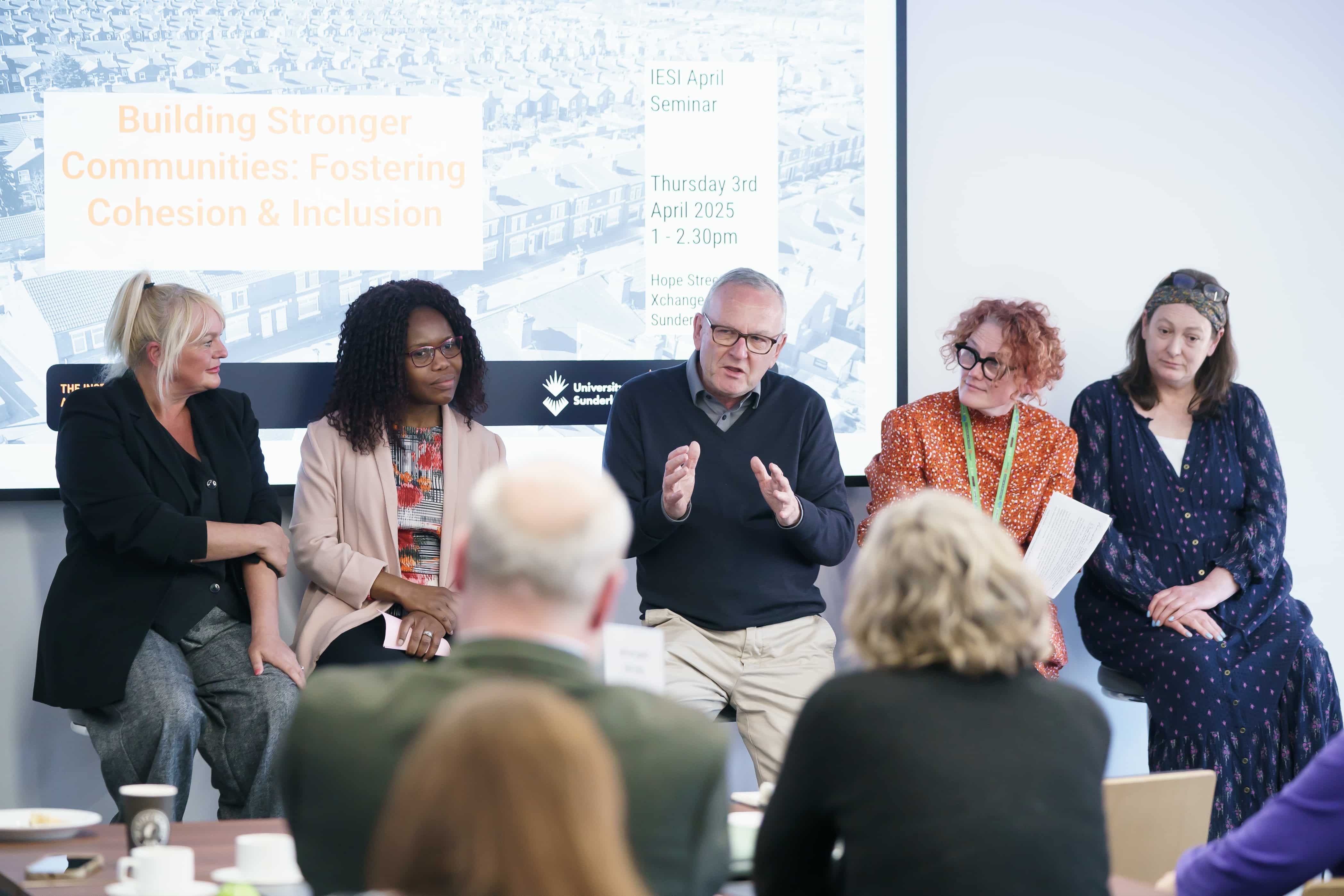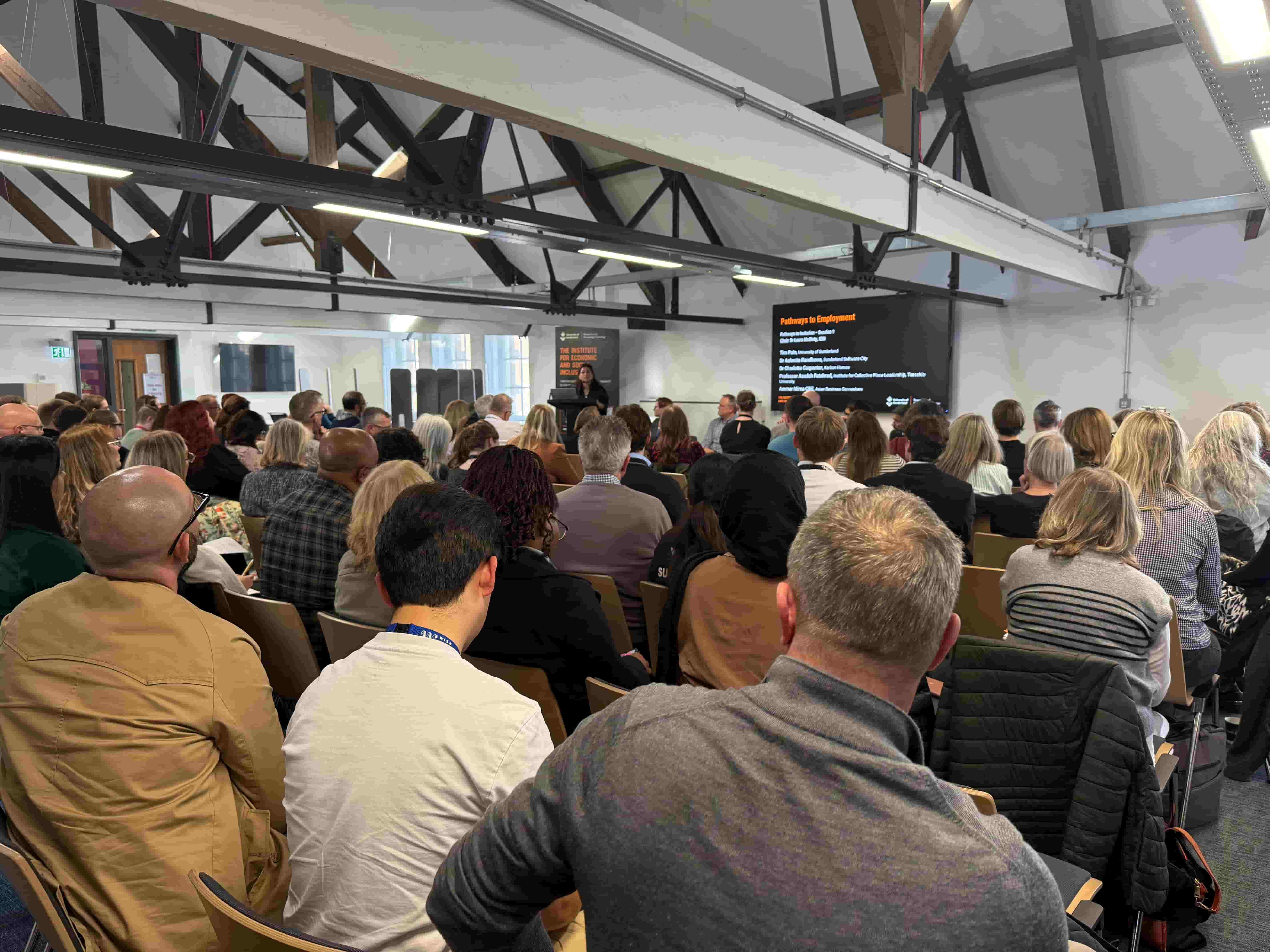This workstream explores how inclusivity, exclusion and inequality manifest in various aspects of daily life, society and culture.
Areas of research include:
Housing, home and community
Housing is crucial in promoting social and economic inclusion and is a key element in discussions about social justice, health, wellbeing, and community. Our research examines housing inequalities and explores how ‘healthy’ home environments, across various spaces (i.e. the house, the community, the neighbourhood, the city) are constructed and sustained. This work responds to the crisis in provision of social and affordable housing, the predatory practices of the lower end of the spectrum of private rented accommodation and the growing issues of housing precarity and homelessness.
Social cohesion, belonging, and identity
We are interested in the very current challenges around neighborhood and community fragmentation. IESI’s work addresses opportunities for social cohesion, the importance of social infrastructure and the idea of connective glue that functional communities provide.
Identity and belonging are pivotal in how individuals and communities experience inclusion and exclusion in society. We analyse how identity and belonging, especially for marginalised communities, plays a role in socio-economic participation, access to resources and opportunities, as well as experiences of discrimination.
Active research projects
Muslim Youth in Scotland
In collaboration with researchers at Newcastle University, this project examines the challenges and contributions of young Muslims in Scotland, particularly their engagement in national and global politics, their lived experiences of racism and Islamophobia, and their perceptions of mainstream and social media.
Urban experiences of asylum seekers and refugees
In collaboration with Newcastle University, we are working on 2 projects examining the lived urban experiences of asylum seekers and Refugees. We have examined issues related to public space, housing, integration, racism, the role of voluntary and community organisations and the impact of Covid-19 on refugees.
“Left behind places” and community-based research
“Left behind places” refers to the urban areas, towns and villages that have high levels of deprivation and have been excluded from economic development over multiple generations. Our research examines the lived experiences in supposed “left behind places” with a particular interest on community-based participatory research approaches and community-led research capacity building.
Our Inclusive Work workstream responds to the relatively high levels of economic inactivity seen in areas of socio-economic challenge such as the North East of England. Alongside these are elevated levels of precarious and extractive work as well as challenges around skills.
The workstream explores a range of topics around how bringing together research and best practice on skills, training and employment can develop high-quality pathways to employment. Key topics in this area include helping people become job market-ready, apprenticeships training and skills, terms of employment, precarious and extractive work, wage discrepancies, recruitment bias, workplace culture, entrepreneurship, and the development of an inclusive industrial strategy.
Active research projects & partnerships
Sunderland Skills and Inclusion Programme
A £2.4m project over 1 year, funded by UKSPF via Sunderland City Council. This partnership consortium is delivering skills training to residents and businesses across Sunderland. IESI are acting as an evaluation and learning partner, and creating a feedback loop to refine and enhance the programme over the course of its delivery, while also considering best practice in skills delivery and pathways to employment more widely.
This workstream responds to issues around disparities in educational attainment caused by issues of socio-economic inequality. It also addresses specific post-Covid related challenges in Early Years provision, increased disengagement with curriculum, sharp increases in demand on Special educational needs and disability (SEND) provision and drop offs in secondary attainment.
Active research projects & partnerships:
University of Sunderland Centre for Inclusive Learning (USCIL)
IESI hosts this proto-Centre. USCIL is taking learnings from national award-winning inclusive learning in the nursing and healthcare sector and examining wider applications in areas such as teaching, social care and the University’s own curriculum. USCIL hosted a successful inaugural all day conference on 17 September 2024 and is already exporting key learnings to external partners in the 3rd sector and Foundation space. USCIL is supporting the implementation and evaluation of the University of Sunderland access and participation plan.
Sunderland Culture - Culture Start
IESI is a research partner in a 2.5-year programme of engagement with disadvantaged young people around culture both to enrich their lived experience, as a means to drive wider engagement, and as a potential career path.
Studying the links and consequences of exclusion on health (and vice versa) and examining socio-economic arguments for health interventions.


